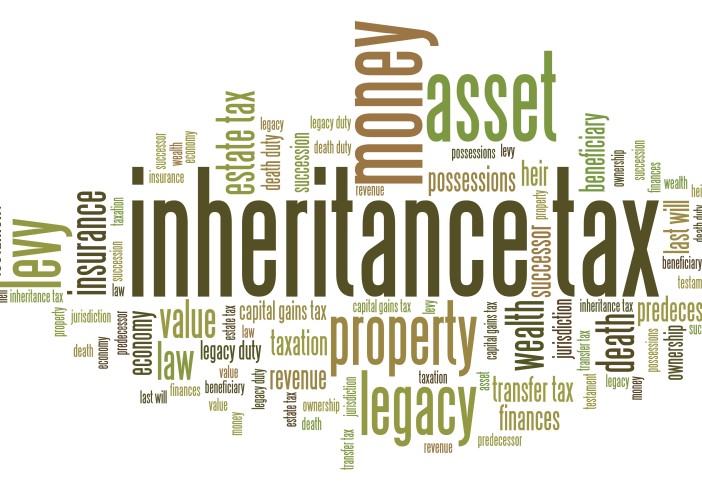
“Cross-Border Inheritance Tax and Income Tax Planning (Case Study)”
Every country has its different rules regarding inheritance and income tax. With sources of income and assets combined with residences and habitual stays in – all together - 5 different countries complexity quickly multiplies. This case study makes this visible, based on a real case, where the involved countries had been Germany, Spain, the UK, Austria and Switzerland.
“Cross-Border Inheritance Tax and Income Tax Planning (Case Study)”
Every country has its different rules regarding inheritance and income tax. With sources of income and assets combined with residences and habitual stays in – all together - 5 different countries complexity quickly multiplies. This case study makes this visible, based on a real case, where the involved countries had been Germany, Spain, the UK, Austria and Switzerland.
The client is a German citizen with a registered tax residency in Germany but spends most of her time in Austria. Her other family members (parents and siblings) are based in Spain. The future estate of her parents might be worth around 50 million euros, consisting mainly of real estate and financial assets. The assets and income sources of the client and her family are distributed in the following countries :
- Germany
- Spain
- United-Kingdom
- Austria
- Switzerland
The goal was to find the most favourable country regarding income and inheritance taxation.
Germany :
Although the client gave up her employment in Germany some years ago, she still remained registered as a German tax resident, out of an apartment rented. There is also income from interests and dividends, sourcing from Germany.
The German inheritance tax only applies, if a person is registered as DE tax resident. The only exemption is real estate located in Germany, which always is subject to DE inheritance tax.
The client can avoid the inheritance tax by giving up the apartment. However, In this case, the inheritance tax will still stay in effect for an observation period of 5 years. This observation period again can be avoided by giving up the German citizenship (in time, so that it is not regarded as abusive).
Spain :
The client has received the Spanish citizenship recently. The inheritance tax varies in each Spanish region (for example, inheritance is tax-free in Madrid, where here parents are situated). Spain doesn’t have any inheritance DTAs with Germany, Austria and the UK. The income taxation in Spain was not relevant in that case.
United-Kingdom :
The client has become a member of the supervisory board of a (semi-public) company after leaving DE. Her partner also works in UK. She was not yet registered for personal tax in the UK (only her partner), but could apply for pre-settlement (Brexit) status, for which she is required to stay (in the future) in the UK for 180 days in any 365 rolling period. Due to working there, having her partner there, her CVI (centre of vital interests) was assumed to be in the UK, thus making her a DTA tax resident in the UK under Article 4. Also her work requires her to be an UK tax resident.
Worldwide assets are subject to UK inheritance tax only, if the deceased is/was domiciled in the UK (when the father or mother born in the UK; or the deceased has been UK tax resident for 15 out of the 20 years prior to death), which was not the case. If the deceased is not domiciled in the UK, only UK sited assets (property) is subject to inheritance tax.
The employment income from her directorship is subject to UK tax, as she performs her duties in the UK. She is required to be a UK tax resident to qualify for pre-settled and settled status.
Austria :
The client has bought a house in Tirol with her partner (not married or in a civil partnership). It looked, as if in the future, she would spend out of all involved countries the relative majority of her time in AT (but less than 183 days).
Inheritance tax in Austria was abolished in 2008. However, there are ongoing political discussions whether to reintroduce it again. Austria has currently no inheritance tax DTAs with the involved countries, except Switzerland. If the DTA residence (not the same as the local tax residence) was moved to Austria, the inheriting from the client‘s parents would therefore be tax-free.
According to Austrian income tax law, one becomes an „unlimited tax payer“ by having a residence in Austria, as in the client‘s case (even if not staying at least 183 days in Austria); exemptions for secondary residences, used max. 70 days/year, are available. Also without CVI In Austria applies the so-called „Progressionsvorbehalt“ (world income is regarded, but only for determining the average tax percentage to be applied on the income allocated to Austria by the tax treaties). This is however irrelevant, since the client doesn’t have any income in Austria.
Switzerland :
The client‘s parents have a bank account there. Swiss inheritance tax hasn’t been checked, as no planning possible for that at the moment.
Result :
United-Kingdom : was the country to go for as the centre of vital interests for a bunch of reasons.
Austria: doesn’t impose tax/administrative burdens, though having a residence there.
Germany: situation would trigger a relevant amount of inheritance tax, but giving up the citizenship of one’s country of origin is also an emotional question.
Spain: makes a lucky situation, if being in a state with no inheritance tax there and major immovable property situated there.
Our regular networking made it possible, that by intense exchange of 3 colleagues we could provide the client with a "tailor made solution".
Klaus Fiebich
FIEBICH & PARTNERINNEN - Austria







